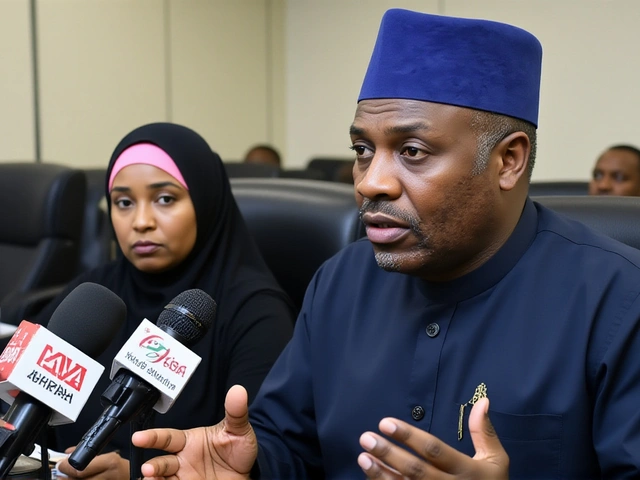Strengthening Bilateral Ties Between Egypt and Saudi Arabia
In a significant step towards solidifying their strategic partnership, Egyptian President Abdel-Fattah El-Sisi and Saudi Arabia's Crown Prince Mohammed bin Salman recently convened for discussions surrounding regional security and economic cooperation. This high-level meeting underlines the ongoing efforts to forge stronger ties between the two prominent Middle Eastern nations. During their conversation, the leaders underscored the importance of boosting bilateral relations across various fields, including trade, investment, and development.
The dialogue between Egypt and Saudi Arabia has seen numerous engagements in recent years, driven by mutual interests in achieving regional stability and prosperity. Against a backdrop of evolving geopolitical dynamics, the leadership of both countries has recognized the necessity of working closely to tackle common challenges and capitalize on shared opportunities.
Economic Cooperation: A Central Focus
Economically, the talks aimed at enhancing trade and investment between Egypt and Saudi Arabia, both of which hold significant geopolitical and economic sway in the region. The two nations are keen on attracting investments in various sectors, including energy, infrastructure, and tourism. Their vision for economic cooperation also includes diversifying income sources and reducing dependency on oil revenues.
A robust economic partnership between Egypt and Saudi Arabia has the potential to benefit the entire region. The integration of their markets can create a more dynamic economic landscape, fostering innovation, and channeling resources into critical development projects.
Investing in Development Projects
A key outcome of this meeting was the agreement to support each other’s national development goals. President El-Sisi and Crown Prince Mohammed bin Salman discussed various initiatives, including the Saudi Vision 2030 and Egypt's Vision 2030, which aim to transform their economies and society over the coming decade. These ambitious plans call for significant investments in technology, education, healthcare, and infrastructure.
Regional Security Concerns
The talks naturally extended to security issues, reflecting the complex challenges that the Middle East region faces. A focal point of their discussion was the ongoing conflict in Libya, a neighboring country to Egypt, where political instability remains a significant concern. Both leaders expressed their commitment to supporting a political solution to the Libyan crisis, one that maintains the sovereignty and territorial integrity of the country.
Another major topic was the Palestinian cause. President El-Sisi and Crown Prince Mohammed bin Salman reiterated their support for a just and comprehensive resolution to the Israeli-Palestinian conflict. They emphasized the need for a two-state solution that guarantees the rights of the Palestinian people and ensures peace and stability in the region.
Combating Terrorism and Extremism
Counter-terrorism efforts were also high on the agenda. Both Egypt and Saudi Arabia have faced significant threats from extremist groups and have been actively involved in combating terrorism on multiple fronts. Their cooperation in this area has included intelligence sharing, military coordination, and joint operations aimed at dismantling terrorist networks.
In their discussions, the leaders highlighted the importance of addressing the root causes of terrorism, such as economic deprivation and ideological extremism. They also called for greater international cooperation to counter the global threat posed by terrorism.
Cultural and Social Cooperation
Beyond the realms of economy and security, Egypt and Saudi Arabia have been working to enhance their cultural and social ties. Both countries boast rich cultural heritage and have been keen to promote this aspect of their relationship. Collaborative efforts include cultural exchange programs, joint archaeological projects, and tourism initiatives that aim to highlight the shared history and traditions of the Arab world.
Future Prospects
The meeting between President El-Sisi and Crown Prince Mohammed bin Salman is viewed as a pivotal moment in the Egypt-Saudi Arabia relationship. The commitment to deepening their partnership promises a range of benefits, from bolstered security and enhanced economic cooperation to stronger cultural ties.
Looking ahead, the continued collaboration between these two influential nations will likely play a crucial role in shaping the future of the Middle East. Their unified stance on critical issues and shared vision for development provide a hopeful outlook for the region's stability and prosperity.







Barry Hall
May 20, 2024 AT 00:15 AMSolid step forward for regional stability 😊.
abi rama
May 28, 2024 AT 07:45 AMSeeing Egypt and Saudi Arabia align on security and growth is heartening. Such collaboration could pave the way for broader Middle Eastern prosperity.
Megan Riley
June 5, 2024 AT 15:15 PMGreat move, really promising, and it shows that both nations are serious about their Vision 2030 goals, even if the paperwork sometimes feels endless!!!, I think this could spark more joint projects, especially in renewable energy, and it will definitely help the youth, however we must keep an eye on implementation, because talk is cheap, and there are always hiccups.
Lester Focke
June 13, 2024 AT 22:45 PMOne must acknowledge the gravitas inherent in the bilateral overture between Cairo and Riyadh; the confluence of strategic imperatives and economic desiderata manifests as a quintessential exemplar of realpolitik in the contemporary Arab sphere, wherein sovereign interests coalesce to forge a synergetic paradigm of regional hegemony.
Naveen Kumar Lokanatha
June 22, 2024 AT 06:15 AMThe partnership looks promising its a chance for both countrys to share resources and boost developement especially in infrastructure and energy sector we should watch how they implement these agreements and hope they keep transparency in the process.
Alastair Moreton
June 30, 2024 AT 13:45 PMHonestly, another fancy press release that probably won’t change anything on the ground. I mean, sure they’ll talk a good game, but the real issues in Libya and Palestinian politics stay the same.
Surya Shrestha
July 8, 2024 AT 21:15 PMIndeed, the convergence of Egyptian and Saudi policy, underpinned by shared fiscal objectives and geopolitical stratagems, signifies a noteworthy evolution in Arabian diplomacy, one that may well recalibrate intra‑regional power dynamics.
Rahul kumar
July 17, 2024 AT 04:45 AMFrom a pragmatic standpoint, this deal could unlock massive funding for Egypt’s transport networks and Saudi’s renewable projects; the cross‑border investments will likely stimulate job creation and tech transfer, which is exactly what the region needs right now.
mary oconnell
July 25, 2024 AT 12:15 PMAh yes, because nothing says “cultural renaissance” like a high‑level summit; I’m sure the next blockbuster will be a joint archaeological dig, sponsored by oil money, while we all pretend it’s about heritage and not geopolitics. #sarcasm
Michael Laffitte
August 2, 2024 AT 19:45 PMWow, this could be a game‑changer! Imagine the flood of new projects, the boost to tourism, and the wave of optimism that could sweep across both nations-truly exciting times ahead.
sahil jain
August 11, 2024 AT 03:15 AMIt’s encouraging to see leaders taking actionable steps toward cooperation; the momentum should keep building, especially in sectors like renewable energy and tech innovation.
Bruce Moncrieff
August 19, 2024 AT 10:45 AMThis alliance could reshape the economic landscape, offering fresh avenues for investment and collaboration, and potentially setting a precedent for other regional partnerships.
Dee Boyd
August 27, 2024 AT 18:15 PMOne must critically assess the moral implications of aligning with regimes whose human‑rights records remain questionable; progress cannot be measured solely by economic metrics.
Carol Wild
September 5, 2024 AT 01:45 AMWhile the headlines celebrate another diplomatic handshake, the deeper currents reveal a tapestry woven with hidden agendas and covert strategies that most observers simply overlook. The timing of this summit, coinciding with a lull in international media scrutiny, suggests a deliberate maneuver to sidestep external pressure. Moreover, the emphasis on economic cooperation serves as a convenient veil for expanding military collaborations that are scarcely disclosed. One cannot ignore the pattern of previous agreements that ostensibly aimed at development but ultimately funneled resources into bolstering surveillance apparatuses. The reference to Vision 2030, while inspiring on the surface, aligns with a broader narrative of technocratic control, where data collection becomes a cornerstone of governance. Critics who voice concerns are often muted through subtle diplomatic incentives, ensuring that dissent remains at the periphery. It is also noteworthy that both nations have maintained opaque channels for funding, bypassing traditional oversight mechanisms, which raises questions about the ultimate beneficiaries of these projects. The joint statements praising regional stability conveniently omit the reality of ongoing conflicts that continue to simmer beneath the veneer of peace. In addition, the partnership may facilitate the export of counter‑terrorism technologies that, in other contexts, have been employed to suppress civil liberties. The juxtaposition of cultural exchange programs with strategic economic pacts hints at a soft‑power strategy designed to normalize a deeper entanglement. Historically, similar alliances have resulted in unintended consequences, ranging from market distortions to geopolitical frictions. Observers should remain vigilant, as the ripple effects of this cooperation could extend far beyond the immediate scope of trade and investment. The lack of transparent reporting on the terms of the agreements leaves a vacuum that is ripe for speculation and, potentially, exploitation by actors with ulterior motives. In sum, while the surface narrative is one of progress, the substratum may be fraught with complexities that demand rigorous scrutiny.
Rahul Sharma
September 13, 2024 AT 09:15 AMIndeed, the concerns you raise merit attention; however, concrete data shows that joint infrastructure projects have already begun delivering measurable benefits, such as reduced logistics costs and increased job opportunities in both economies.
Emily Kadanec
September 21, 2024 AT 16:45 PMJust so you know, the stats clearly indicate that Egypt’s GDP growth accelerated post‑agreement, and Saudi’s diversification index improved; facts speak louder than speculation.
william wijaya
September 30, 2024 AT 00:15 AMThat’s encouraging to hear; the human element behind these numbers-people gaining stable employment and improved services-truly underscores the positive impact of such collaborations.